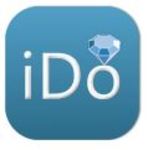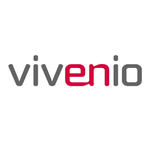Description

iDo

Oxford Abstracts
Comprehensive Overview: iDo vs Oxford Abstracts
I have limited information on specific lesser-known software products like "iDo, Oxford Abstracts," especially in niche markets. However, I can offer some general guidance based on typical products related to project or event management and abstract submission processes, which may align with what Oxford Abstracts typically provides. If these are the products you're referring to and you have more specific details, I can tailor the response further.
a) Primary Functions and Target Markets:
iDo:
- Primary Functions: iDo could generally refer to a task or project management software designed to streamline workflows, enhance productivity, and manage tasks efficiently within teams. It might include features such as task assignments, project timelines, progress tracking, and collaboration tools.
- Target Markets: Typically, the target markets would be businesses and organizations ranging from small teams to larger enterprises looking to optimize project management. It could also appeal to specific industries needing tailored task management solutions.
Oxford Abstracts:
- Primary Functions: Oxford Abstracts is generally known for providing conference management solutions, particularly focusing on abstract submissions. It typically offers functionalities like abstract submission portals, peer review systems, and event scheduling and management tools.
- Target Markets: This is largely targeted toward academic institutions, conference organizers, scientific meetings, and other events requiring seamless abstract submission and review processes.
b) Market Share and User Base:
-
iDo: The market share and user base of iDo would largely depend on the niche it serves within the task and project management market. It would likely face competition from well-established platforms such as Asana, Trello, and Monday.com, which dominate in terms of market awareness and adoption.
-
Oxford Abstracts: While precise market share details may not be publicly available for Oxford Abstracts, it would cater to a specialized niche specifically in academic and scientific conference management. Its user base would primarily comprise academic professionals, conference organizers, and institutions handling numerous abstracts and peer reviews.
c) Key Differentiating Factors:
-
iDo:
- Usability and Interface: May differentiate itself with a user-friendly interface, simplicity, or specific tools that enhance team collaboration.
- Customization: It might offer strong customization features to cater to specific industries or unique project management methodologies.
- Integration: Could provide superior integration options with other software platforms or tools commonly used in target industries.
-
Oxford Abstracts:
- Specialization: Specifically tailored for managing academic conferences with robust abstract management features, which general event management tools might not offer.
- Review System: Offers a peer review system uniquely designed for the academic community, potentially setting it apart from more generalized conference software.
- Comprehensive Event Management: Beyond just abstracts, it might provide end-to-end solutions for the event management lifecycle, from planning to execution.
Without specific data, these are speculative insights based on typical functionalities and markets for similar products. For precise details, direct information from the companies or user reviews would be more informative.
Contact Info

Year founded :
2019
Not Available
Not Available
India
Not Available

Year founded :
Not Available
Not Available
Not Available
Not Available
Not Available
Feature Similarity Breakdown: iDo, Oxford Abstracts
iDo and Oxford Abstracts are both tools designed to assist with event management and academic conference organization, respectively. Here’s a breakdown of their feature similarities and differences:
a) Core Features in Common
-
Event Registration and Management:
- Both platforms allow users to create and manage events, handling registrations, payments, and participant data.
-
Abstract/Submission Management:
- iDo and Oxford Abstracts offer features for submission management, suitable for conferences needing to manage paper or abstract submissions.
-
Communication Tools:
- Both platforms provide tools to communicate with participants or attendees through email notifications and updates.
-
Customizable Forms and Surveys:
- Each platform allows users to create custom forms for registrations, surveys, or feedback.
-
Analytics and Reporting:
- Both offer data analytics and reporting tools to help organizers evaluate event outcomes.
b) User Interface Comparison
-
iDo:
- Typically noted for a user-friendly interface with a focus on intuitive navigation that caters to a broader range of users, including those organizing smaller events.
- It may have a more modern look with drag-and-drop capabilities often found in event management software.
-
Oxford Abstracts:
- Specifically designed for academic conferences, with interfaces tailored for detailed abstract management and peer review processes.
- It tends to have a more functional design, focusing on robustness and depth of features needed for academic events, which could appear more complex to users unfamiliar with such processes.
c) Unique Features
-
iDo:
- Often emphasizes broader event marketing tools, including integration with social media platforms and promotional tools.
- May include features for managing a variety of event types, such as weddings or parties, beyond academic and professional events.
-
Oxford Abstracts:
- Specializes in managing the abstract and peer review process, which is vital for academic conferences.
- Offers sophisticated integration with academic databases and tools that are critical for research event management.
- Tailored features for managing complex academic tracks, multiple sessions, and speaker management.
In conclusion, while both iDo and Oxford Abstracts share core features related to event management, iDo is designed for a broader audience with diverse event needs, while Oxford Abstracts focuses on academic conferences with features specifically catering to the scholarly community.
Features

Not Available

Not Available
Best Fit Use Cases: iDo, Oxford Abstracts
To determine the best fit use cases for iDo and Oxford Abstracts, it's important to understand the primary functions and strengths of each tool. iDo is a project management tool that typically supports collaboration, task management, and project tracking, while Oxford Abstracts is known for its event management capabilities, particularly related to academic and research-oriented conferences.
a) For what types of businesses or projects is iDo the best choice?
iDo is best suited for:
- Small to Medium Enterprises (SMEs): These businesses can benefit from streamlined project management functions to improve collaboration and efficiency without needing overly complex systems.
- Creative Agencies: With a need for collaborative work environments and task delegation, creative teams can use iDo to track projects from ideation to completion.
- Tech Startups: Fast-paced startups can use iDo to manage agile development cycles, track sprint progress, and maintain clear communication across teams.
- Remote Teams: Any business where team members are not co-located can use iDo to centralize project communication and documentation.
b) In what scenarios would Oxford Abstracts be the preferred option?
Oxford Abstracts shines in scenarios involving:
- Academic Conferences and Workshops: Universities and research institutions hosting conferences need tools like Oxford Abstracts to manage submission, review, and schedule of presentations.
- Associations or NGOs Organizing Events: Professional associations or non-profit organizations that organize symposiums or public forums can effectively manage program content.
- Corporate Conferences: Companies holding large, content-heavy events with varied sessions, tracks, and speakers can use Oxford Abstracts for efficient event management.
- Research Networks: Collaborations or networks that facilitate research exchanges benefit from keeping all submissions and reviews organized and easily accessible.
d) How do these products cater to different industry verticals or company sizes?
iDo:
- Industry Vertical Adaptability: While it can be used across various industries, iDo is particularly effective for those focused on project-based work, such as IT, marketing, and design.
- Company Size: iDo is scalable for small teams to medium-sized businesses, offering flexible pricing and features that allow for gradual expansion as a company grows.
Oxford Abstracts:
- Industry Focus: It primarily caters to the academic, scientific, and professional sectors, where organizing large-scale, content-focused events is crucial.
- Size of Organizations: Well-suited for large institutions, international conferences, or any organization needing to efficiently manage complex event logistics and large numbers of participants or submissions.
Both products align well within their niche, offering tailored solutions that enhance productivity and efficiency for their respective target markets.
Pricing

Pricing Not Available

Pricing Not Available
Metrics History
Metrics History
Comparing undefined across companies
Conclusion & Final Verdict: iDo vs Oxford Abstracts
To provide a comprehensive conclusion and verdict between iDo and Oxford Abstracts, let's break down the comparison and considerations:
Conclusion
a) Best Overall Value:
The choice between iDo and Oxford Abstracts ultimately depends on the specific needs and priorities of the user or organization. If you prioritize an intuitive interface with robust event management and productivity tools, iDo may offer better overall value. Conversely, if your focus is on comprehensive abstract management with in-depth features for academic and research conferences, Oxford Abstracts may be the preferred choice.
b) Pros and Cons:
iDo:
-
Pros:
- Intuitive and user-friendly interface.
- Strong productivity features, excellent for task and event management.
- Flexible and suitable for various types of user needs, from personal use to team collaboration.
-
Cons:
- May lack the depth of specialized features required for academic conferences.
- Limited focus on abstract management compared to dedicated tools like Oxford Abstracts.
Oxford Abstracts:
-
Pros:
- Comprehensive abstract management features, ideal for academic and research-focused events.
- Customizable workflows designed to streamline conference organization.
- Established presence in the academic community, providing assurance of reliability.
-
Cons:
- Learning curve may be steeper for users unfamiliar with professional conference management.
- Could be considered over-featured for users not deeply involved in academic event management.
c) Recommendations for Users:
-
Assess Needs:
- Define the primary purpose of your tool usage. Are you managing personal tasks and events (iDo), or organizing academic conferences with extensive abstract submissions (Oxford Abstracts)?
-
Budget Consideration:
- Evaluate the cost relative to the features you need. Avoid paying for features you won't use.
-
Trial Both Platforms:
- If possible, take advantage of trial versions or demos. Experiencing the user interface and features first-hand can aid decision-making.
-
Seek User Feedback:
- Look for reviews and testimonials from similar organizations or users who utilized both platforms for comparable tasks.
-
Consider Integration Needs:
- Ensure the platform you choose integrates smoothly with existing tools and systems you currently use.
In summary, your decision should be driven by the specific demands of the tasks you aim to manage. iDo may be more suitable for multi-functional productivity needs, while Oxford Abstracts excels in specialized environments related to academic or professional conferences.
Add to compare
Add similar companies



